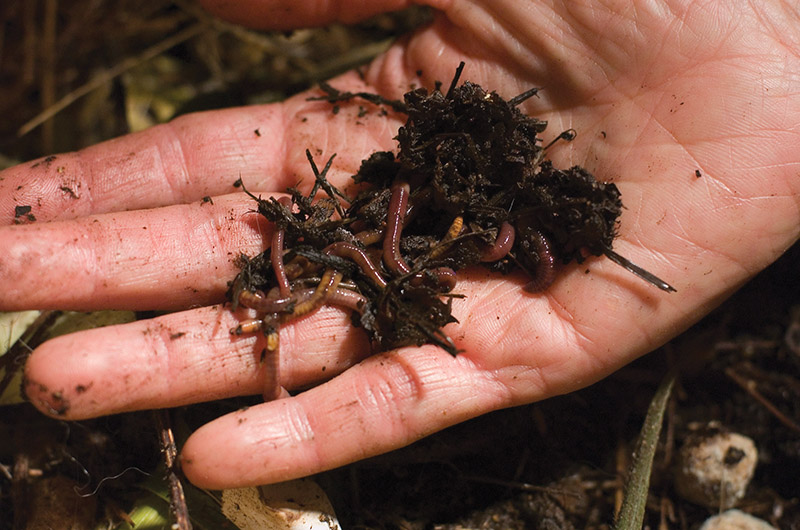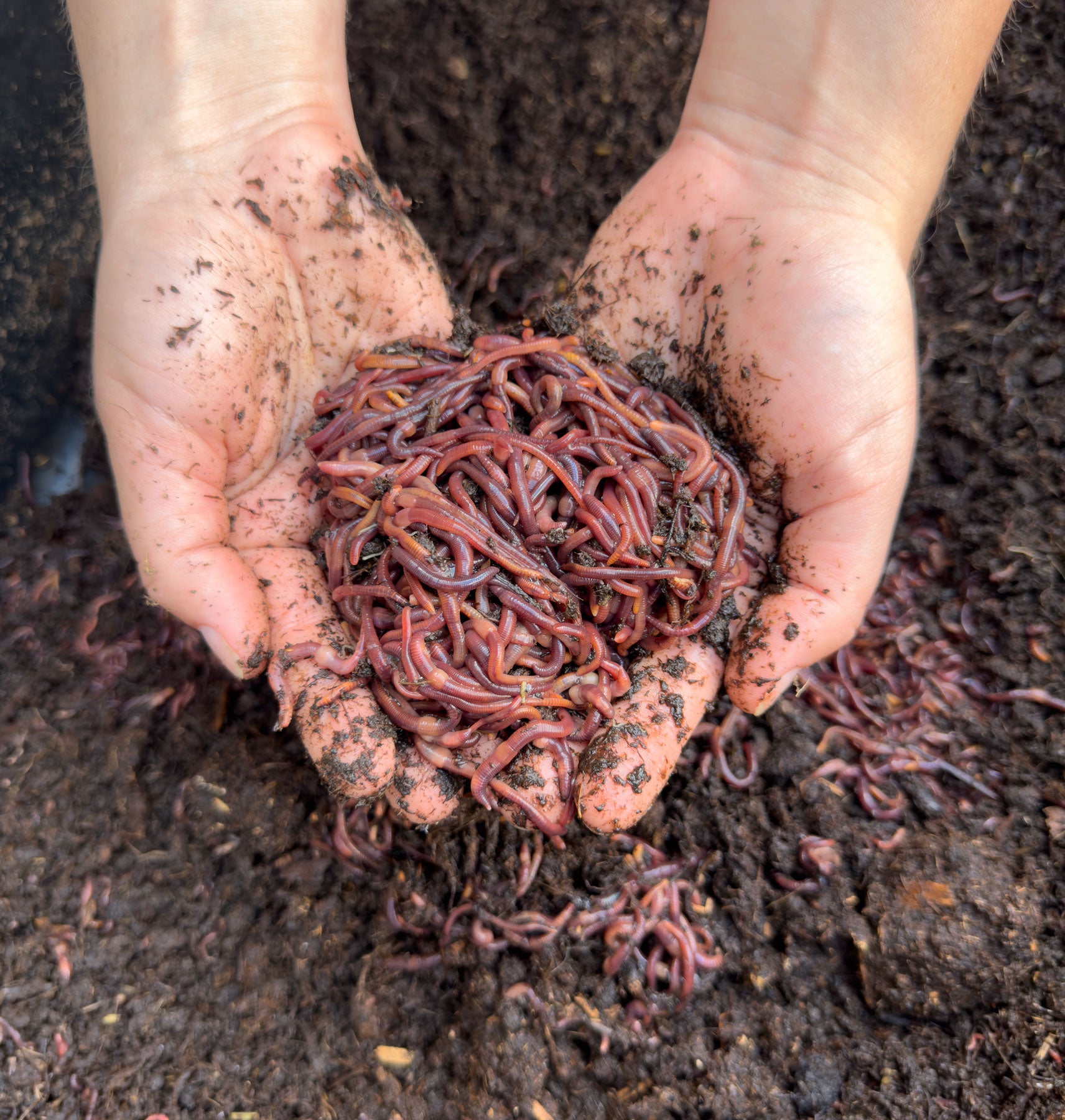Purchase Red Wiggler Worms - Perfect for Composting and Gardening
Red Wiggler Worms Demystified: Unlocking the Keys of Vermiculture for Greener Living and Nutrient-Rich Soil
In the realm of sustainable methods for enhancing soil high quality and promoting eco-conscious living, red wiggler worms play a pivotal yet often forgotten function. Red Wiggler Worms. Comprehending the complexities of caring for these worms, optimizing their environment, and harnessing their spreadings can lead to a greener way of life and much healthier dirt for plants to prosper.
The Role of Red Wiggler Worms
Red Wiggler worms play an essential duty in composting systems by effectively damaging down natural matter into nutrient-rich castings. These ravenous eaters eat a range of natural materials, such as kitchen scraps, yard waste, and paper items. As they feed, the worms' digestion procedures break down the raw material into a fine, dark, and nutrient-dense product called worm castings or vermicompost.
The spreadings created by Red Wiggler worms are highly advantageous for dirt health and wellness and plant development. They are abundant in important nutrients like phosphorus, potassium, and nitrogen, which are important for sustaining healthy and balanced plant advancement. Furthermore, worm spreadings contain useful microorganisms and enzymes that help boost soil structure, increase water retention, and improve nutrient uptake by plants.
Advantages of Vermicomposting

Furthermore, vermicompost, the nutrient-rich final result of vermicomposting, acts as an exceptional organic plant food and dirt conditioner. It improves dirt framework, improves soil aeration, and boosts dirt moisture retention. These residential properties add to healthier plants with more powerful origin systems and far better resistance to insects and diseases. Vermicompost likewise improves the soil with necessary nutrients like potassium, nitrogen, and phosphorus, promoting plant development and overall dirt fertility.
Furthermore, vermicomposting supports lasting horticulture methods by providing a all-natural and chemical-free alternative to synthetic fertilizers. Red Wiggler Worms. This eco-friendly approach not only improves the soil but also helps in reducing dependence on hazardous chemicals, promoting a greener and extra lasting means of horticulture
Establishing a Worm Bin
When establishing a worm container for vermicomposting, appropriate arrangement is important to guarantee the success of the composting procedure. The initial step in establishing up a worm container is selecting a suitable container.
After adding the bedding, present the red wiggler worms to the bin. It is recommended to begin with a small number of worms and gradually increase as they multiply. The worms must after that be given with food scraps such as vegetables and fruit peels, coffee grounds, and eggshells. It is important to stay clear of including meat, Visit This Link milk, oily, or salted foods to avoid attracting bugs and producing unpleasant smells.
On a regular basis monitor the dampness degrees and temperature level in the worm bin to guarantee optimum conditions for the worms. i loved this With proper configuration and maintenance, the worm container will efficiently convert organic waste right into nutrient-rich compost for your plants and garden.
Collecting Worm Spreadings
To efficiently accumulate nutrient-rich worm spreadings from your vermicomposting system, an organized harvesting approach is crucial. There are a few vital actions to follow to make sure a successful procedure when it comes time to gather the worm castings. Firstly, stop adding fresh food scraps away of the worm container for a number of weeks before collecting. This motivates the worms to migrate to the side with fresh bedding and food, making it easier to dig the castings from the opposite.

Troubleshooting Common Issues
Recognizing and dealing with common difficulties that might emerge throughout the vermicomposting procedure is important for preserving a efficient and healthy and balanced worm container. One usual issue that vermicomposters encounter is overfeeding. Adding excess food scraps can lead to a build-up of moisture and acidity in the worm bin, possibly hurting the worms. To stop this, feed the worms in moderation, ensuring that the food scraps are adequately broken down before including much more. One more issue is undesirable smells emanating from the worm bin. Foul scents show anaerobic problems, commonly triggered by overwatering or poor air flow. To fix this, adjust the wetness levels by adding completely dry bedding products like shredded paper or cardboard and boost aeration by turning the bed linen frequently.
Furthermore, if the worm populace is declining or the worms show up undesirable, maybe due to ecological stressors such as severe temperature levels or pH levels. Monitoring these elements and making essential modifications is important for the well-being of the worms. By repairing these common problems his response immediately, vermicomposters can make certain a smooth and successful vermicomposting process while preserving a prospering worm population.

Final Thought
Finally, red wiggler worms play an essential role in vermiculture by damaging down natural matter into nutrient-rich soil. The advantages of vermiculture include greener living and enhanced soil high quality. Establishing a worm bin is important for successful vermiculture, and harvesting worm spreadings gives useful garden compost for gardening. By comprehending and repairing usual problems, individuals can unlock the tricks of vermiculture for sustainable living and much healthier dirt.
As they feed, the worms' digestion procedures damage down the natural matter right into a fine, dark, and nutrient-dense product understood as worm castings or vermicompost.
The castings created by Red Wiggler worms are very helpful for soil wellness and plant growth. Adding excess food scraps can lead to an accumulation of moisture and acidity in the worm container, possibly harming the worms.Furthermore, if the worm populace is declining or the worms appear undesirable, it can be due to environmental stressors such as severe temperature levels or pH degrees. Setting up a worm bin is necessary for successful vermiculture, and harvesting worm castings supplies useful garden compost for gardening.